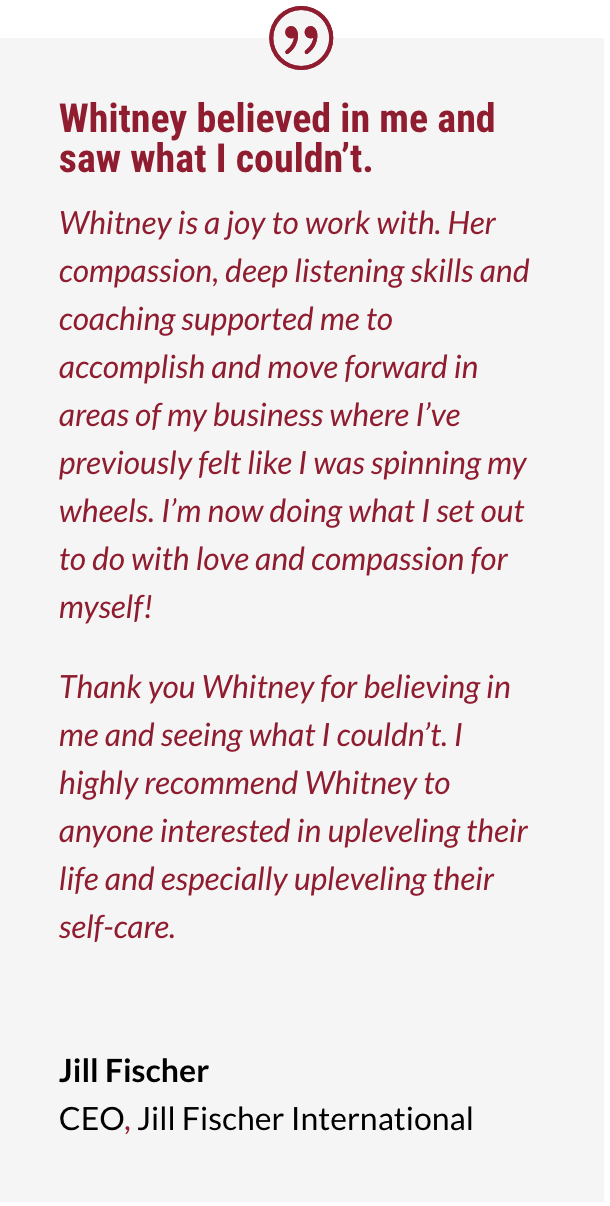Even after a busy day of work, your boundless love and patience is unwavering. You stand by your loved one’s side, tending to their injuries and recovery. You nurture, encourage and uplift.
But your compassion can come at a cost — your physical, mental, and emotional well-being.
If you’re vulnerable to overgiving your time and energy, you’ll eventually feel the effects. Exhaustion. Irritability. Isolation. Your life feels unbalanced and you’re desperate for a remedy.
Ease your worries. You’re exactly where you need to be.
In this article, I share tips on how self-care can help you prevent and overcome your caregiver burnout.
Let’s get started.
What is Caregiver Burnout?
Caregiver burnout is a state of physical, mental, and emotional exhaustion triggered by your responsibilities as a caregiver. Many caregivers are prone to over-giving their time and energy, while sacrificing their own health. The negative effects of doing this are subtle at first. Over time, however, these small consequences snowball into signs of burnout.
Many caregivers are prone to over-giving their time and energy, while sacrificing their own health. Share on X
What Causes Caregiver Burnout?
Caregiving is a demanding role that can drain you and trigger caregiver stress and burnout. Some stressors that chip away at your well-being include:
- Neglecting self-care: As a caregiver, you might develop tendencies to fulfill your loved one’s needs, while neglecting your own well-being.
- Overwhelm: Caregiving is demanding of your time and energy. Trying to fulfill this role alongside your other responsibilities can leave you overwhelmed and fatigued.
- Negative Attitude: Sometimes the people you care for can be difficult, especially if they suffer from a grave illness. They may be hostile, combative, or passive aggressive. Daily exposure to their negative energy can be emotionally draining.
- Loss of personal time and space: If you’re a caregiver from within your own home, duty and relaxation share the same space. This may cause poor work/life balance, which can lead to caregiver burnout.
What are the Symptoms of Caregiver Burnout?
Caregiver burnout is straining on your emotional, physical, and mental well-being. Women, especially, need to be careful. Studies show that female caregivers report “higher levels of depressive and anxiety symptoms and lower levels of subjective well-being, life satisfaction, and physical health.”
In addition to depression and anxiety, you may experience:
- Social isolation
- Loss of interest in hobbies
- Feelings of helplessness
- Increased sickliness
- Poor sleep quality
- Emotional and physical exhaustion
- Irritability
While caregiving can be a virtuous calling, don’t fall prey to over-giving yourself to this role. Balance, healthy boundaries, and self-care will protect you from caregiver burnout.
How to Manage Caregiver Burnout
When you feel your stress and exhaustion manifesting, pause and assess what changes you need to make.
The worst thing you can do is to act as if nothing’s wrong. Enduring your burnout symptoms without making changes will compromise your health.
Here are a few ways to help you prioritize your health and well-being:
#1 Ask for Help
Doing everything yourself can seem like a noble mission. But fulfilling your every obligation as a mom, career woman, spouse, and caregiver? It’s more often wishful thinking.
The uncomfortable truth is that you can’t do it all — at least, not indefinitely.
Sometimes, you’ll need to ask for help. Assign more household chores to your children. Take turns putting dinner on the table with your spouse. See if you can hire a nanny to look after the children.
Learn when it’s time to slow down and lean on your support system.
What is one thing that you can delegate? Who will you ask to help you?
#2 Join a Caregiver Support Group
Caregivers experience unique stressors that few can empathize with. For example, caring for a parent with a terminal illness creates an emotional toll that your friends and family may not relate to. You might start feeling isolated.
There are ways to overcome this loneliness.
Try joining a caregiver support group. Surrounding yourself with women who share your struggles can inspire a sense of belonging. They understand the physical and emotional hardships of being a family caregiver.
If you’re interested in joining a caregiver support group, you can search locally or join an online community.
#3 Research Respite Care Services
If you’re a live-in caregiver, your job can be a 24-hour responsibility. Imagine what happens when your brain is on non-stop alert.
It puts you on the fast-track to burnout.
Before your mind and body crash from overexertion, consider using respite care services. They will send a substitute to take over your caregiving responsibilities and are offered within your home, at a day-care center, or an overnight residential center.
This gives you time to rejuvenate your mind and body while keeping burnout at bay.
#4 Prioritize Your Well-Being
As a caregiver, you focus your time, energy, and attention on the person you care for. Sometimes, you get so locked into your role that you forget you’re your own woman with her own needs.
Remember to be a caregiver to yourself.
You might feel guilty at first. Selflessness is the cornerstone of caregiving. But caring for the caregiver? That isn’t part of the job.
But failure to practice self-care is a disservice to you and your loved one.
The quality of your care is reduced when you’re physically exhausted and emotionally drained. Overcome this by reconnecting with happiness, health, and balance.
Provide your body with exercise and nutritious foods. Practice patience and self-love. Maintain relationships with your friends and family. Value joy and compassion.
All It Takes is Ten Minutes…
Following my last tip, you might be curious about prioritizing your well-being with self-care. What do you do and how do you introduce it into your daily life?
Does it take a lot of time or cost money?
It doesn’t. Self-care doesn’t have to be a week-long retreat or an expensive therapy session.
You might be surprised how simple and quick self-care can be.
All it takes is ten minutes to practice self-care with my “From Burnout To Balance: A Simple 10-Minute Daily Self-Care Practice.”
This practice has been shown to:
- Increase mindfulness, well-being, self-confidence, and personal power
- Increase your ability to concentrate
- Cultivate a greater resilience to stress, a positive mindset, and a sense of hopefulness and calm
- Decrease stress and stress-related symptoms like frustration, mood swings, feelings of overwhelm or lack of control, anxiety, depression, low energy, headaches, body aches and pains, muscle tension, chest pain and rapid heartbeat, insomnia, and frequent colds and infections
- Reduce or even stop worrying
References
Whitney believed in me and saw what I couldn’t.
Whitney is a joy to work with. Her compassion, deep listening skills and coaching supported me to accomplish and move forward in areas of my business where I’ve previously felt like I was spinning my wheels. I’m now doing what I set out to do with love and compassion for myself!
Thank you Whitney for believing in me and seeing what I couldn’t. I highly recommend Whitney to anyone interested in upleveling their life and especially upleveling their self-care.





